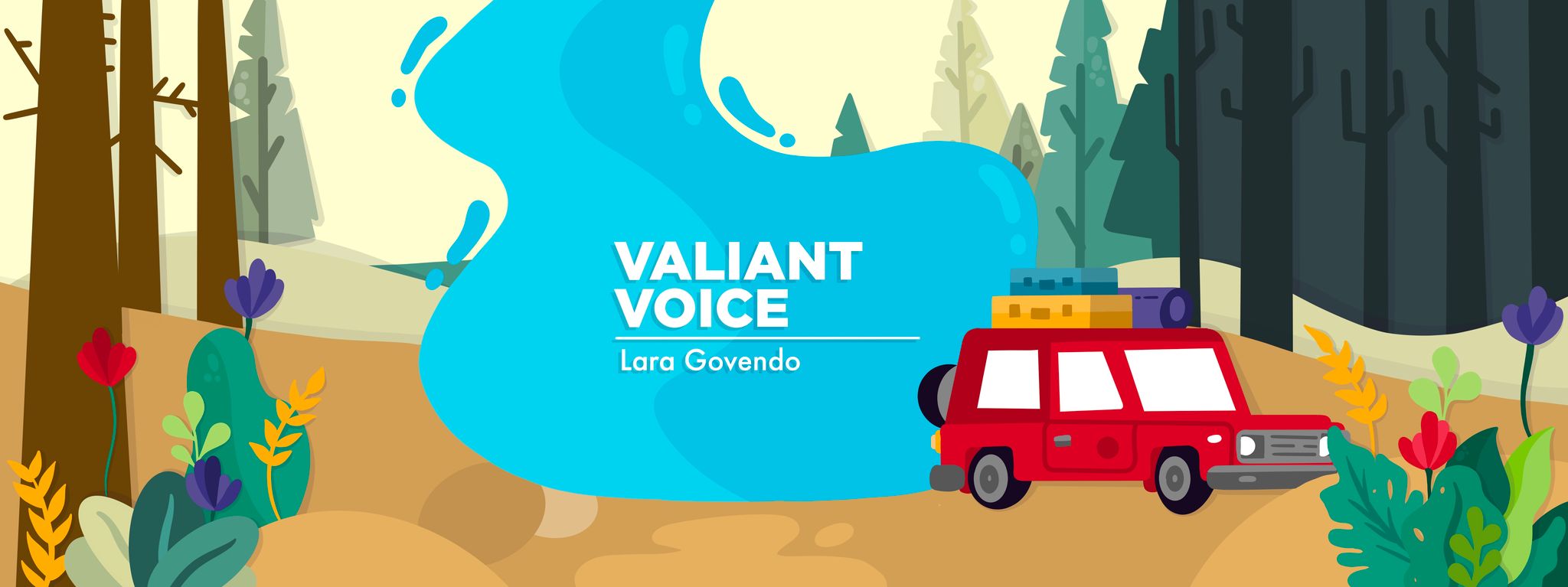Learning to Walk Alongside Grief

I sat with this heavy feeling for years without knowing its name. Throughout my turbulent health journey, a deep sadness would often wash over me. I didn’t understand why, as there wasn’t a precipitating event. But I knew I had to dive into it in order to understand what was at its root.
Grief.
We often think grief is only tied to the death of loved ones. Sometimes we give grief credit when we lose relationships in any capacity. Rarely do we acknowledge grief when it comes to life changes.
Transitions, whether positive or negative, can lead to grief. In the chronic illness world, we have to grieve job losses, health declines, and the life we had envisioned.
In the moment, it may not feel like grief. Anger, sadness, and shame come to mind.
Grief really hit me prior to my double-lung transplant four years ago. Sometimes a wave of “sadness” would crash over me, and I would burst out crying uncontrollably.
During this time, I thought I was good. I wasn’t upset that I was sick. It was hard, but I never thought that my life sucked. I knew it was only a season of my life, and I was content to simply be.
It didn’t occur to me that I would have to grieve for so much.
Before transplant, I had to grieve the control that was slipping through my fingers faster than quicksand. Losing my job, relationships, and stable health were all heavy emotional matters.
After my transplant, life as I knew it had changed overnight, and I didn’t know who I was anymore. My routine was completely different; I no longer had to spend hours doing breathing treatments. I wasn’t in the hospital around all the people I had developed close connections with. I felt like a foreigner in my body. I had new lungs that could breathe easily — a stark contrast to my first set of lungs, which struggled daily. Everything was different.
There were so many moving pieces in this new puzzle that I didn’t know what I was feeling. I just knew it hurt, I couldn’t stop crying, and my life had been flipped upside down.
Yes, it was a good change. I was grateful a transplant had saved my life. I was happy to be alive.
But I didn’t know grief would smack me in the face. I definitely didn’t plan on grieving my original lungs, which had worked so hard for 30 years, and the life that went with them.
Aug. 30 is National Grief Awareness Day. I hope that sharing the tips that have helped me move through grief will help you, too.
It’s important not to downplay seasons of grief. They are real and a big deal. More importantly, they are valid and natural to experience with chronic illness.
Grief is hard. It hurts. It can feel like we will never wade through it. It’s important to remind ourselves that seasons don’t last forever. The same is true for grief.
Grief is complicated. It’s messy and rarely linear. It can hit out of nowhere. It can also bubble up after you think you’ve healed.
Give yourself grace as you grieve. You can take all the time you need; everyone’s timeline is different. It’s important to sit with our grief and feel it. Only when we give ourselves permission to grieve do our hearts fully open for healing.
Grieving is a journey. For transplant recipients or those with chronic illnesses like CF, it’s lifelong. Learning how to walk alongside grief is essential for our well-being and overall functioning.
It’s also important to get the care that we need. I believe going to therapy to process grief is crucial. Surrounding ourselves with people who “get it” is essential. We need people who have walked the same path and will sit with us in our grief, validate us, and support us as we heal.
Embracing this part of our story can be beautiful, too.
***
Note: Cystic Fibrosis News Today is strictly a news and information website about the disease. It does not provide medical advice, diagnosis, or treatment. This content is not intended to be a substitute for professional medical advice, diagnosis, or treatment. Always seek the advice of your physician or other qualified health provider with any questions you may have regarding a medical condition. Never disregard professional medical advice or delay in seeking it because of something you have read on this website. The opinions expressed in this column are not those of Cystic Fibrosis News Today, or its parent company, Bionews, and are intended to spark discussion about issues pertaining to cystic fibrosis.









Sonya A Ostensen
Lara, this was so timely and insightful. I am passing it on to a friend who is going through grief with lime disease but I am certain they may be able to relate and hopefully gain a method to help cope.
Thank You for your wisdom as always!